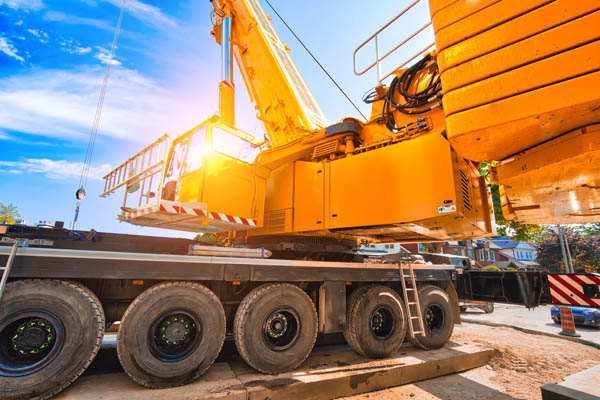How Comprehensive Crane Training Ensures Worksite Safety

Construction sites are often home to powerful pieces of heavy machinery as well as literal tons of building materials all being moved, manipulated, and hoisted. Is it any wonder that safety is, and should be, a top priority for construction site managers? One of the most vital pieces of heavy equipment for any worksite is the crane, which is necessary to lift heavy loads, but this also means that an inexperienced or incompetent crane operator can be a massive danger on a construction site. In this article, we’ll look at why crane training is so important for safe and efficient job sites.
Why Are Cranes Important to Construction Sites?
Whether it’s girders or slabs of concrete, the best way to lift and move heavy loads above ground level is with a crane. Because of this, cranes are an indispensable part of any construction site. There simply isn’t a better way to elevate heavy loads and to move key elements of a building into place.
However, cranes are also some of the biggest and most complex parts of a construction project, which makes them potential hazards. A bad crane operator can turn a steel girder into a wrecking ball, which could result in injuries, property damage, or even fatalities. Understandably, this is something you want to avoid at all costs.
What Does Comprehensive Crane Training Teach Crane Operators?
To start with, any well-managed construction site will require comprehensive crane training before they put anyone behind the controls. This is because proper training is the linchpin of worksite safety, especially when it comes to crane operation. Operators need to understand the intricacies of working a crane. In crane training, crane operators will learn key elements like:
- How to understand crane load capacity
- How to safely and securely move loads
- How to assess that a load is correctly secured
- How to properly communicate with ground personnel so that few mistakes are made
A good crane training program will cover topics like equipment inspection, load charts, and proper emergency procedures.
Operators will learn how to identify potential issues in regular equipment inspection and maintenance, ensuring that the crane is in optimal working condition and that mechanical failures can be caught before they turn into accidents.
Crane operators will also learn how to use standardized hand signals to convey instructions to crew on the ground. This communication and coordination is vital to ensure that everyone is aware of the crane’s movements, which reduces the risk of accidents caused by someone being in a place they shouldn’t be at the wrong time.
However, things can always go wrong—it’s the nature of the world. Comprehensive crane training will teach operators how to handle things like an equipment malfunction or a sudden change in weather. This knowledge can be the dividing line between a minor incident that everyone laughs about afterward and a catastrophic accident.
Crane training is important to ensure good, safe, and efficient job sites. If you want to be an excellent crane operator who construction foremen trust, you need great crane training. Contact the experts at West Coast Training today to start your crane training program.
